The concept of reality is an interesting one.
We all exist, yes, but do we all exist equally? Do we exist outside of our own conception of ourselves? Does the outside world exist without anyone there to observe it? Are we what we think, or are we something more concrete than that?
Why, yes, I am talking about the existential crisis so nonchalantly brought up in Chrono Trigger, thanks for noticing!
Chrono Trigger deals with many deeper themes, including religion, but one that I found particularly fascinating is one that comes up in Zeal, and then again at the campsite: the idea that this reality that the companions are in might not be the objective, solid reality that they think they are in.
Seven Seeking
As you may recall from our last chat on Chrono Trigger and religion, seven is an important number, and it comes up often in literature because of it. Seven features prominently in the Bible, pilgrims to Mecca walk seven times around the Kaaba, the world is made of seven heavens according to the Talmud, and there were seven Rings for the dwarven kings in their halls of stone. Seven deadly sins, seven colors in a rainbow, and in folklore the seventh son of the seventh son often was born with supernatural powers. Seven, seven, seven is a winning combination at a slot machine. Again and again, seven.*

Seven is, more importantly for our purposes today, traditionally seen as a number that symbolizes seeking reality behind an illusion. It shouldn’t be a surprise that Chrono and his companions, when all are assembled, total seven. Their mere existence suggests that they are trying to discover what is behind the proverbial curtain of their existence. With their quest of altering reality (via not allowing Lavos to rise) already at the forefront of players’ minds, it’s not difficult to entertain the idea that there could be more that this group is seeking, as well.
There are three points in particular that this band of seven is examining:
- The past as a dream, as Ozzie comments
- Reality as an individual creation or illusion, as the friends comment on in camp
- Self as real and imaginary, as commented on in Zeal
Everyone hold on to the nearest thing that you perceive to be a hat, because we’re about to bend your concept of reality using a video game.
No Sense in Looking Back
One of the first instances that suggest reality in Chrono Trigger is not all it seems is when the companions are facing Ozzie, on of Magus’s minions. Ozzie, for all of his ineptitude, makes one chilling observation: the past is a dream. While on the surface this may seem like just a superficial comment meant to sound more profound than it is, this actually touches upon the idea of something called presentism.
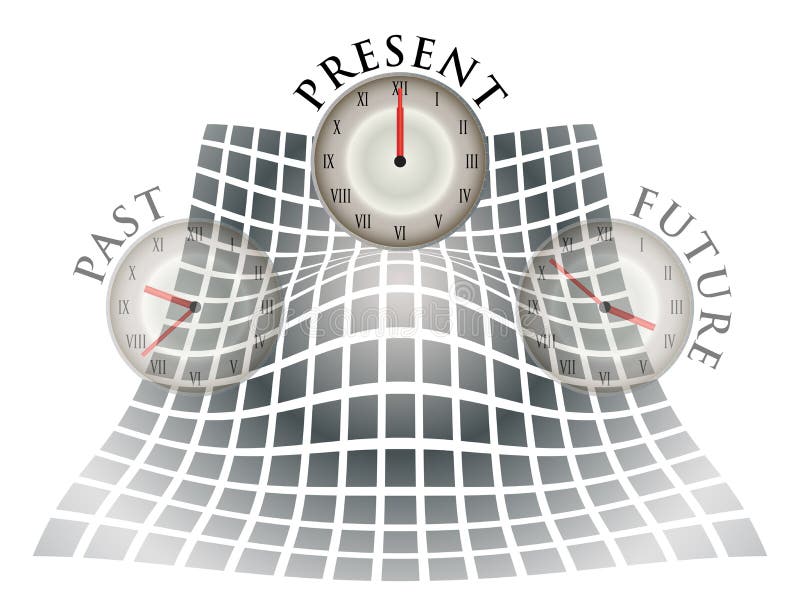
Presentism is a philosophical concept that poses the past and the future don’t actually exist. Rather, they are constructs used to describe the present, and “exist” only as a means of describing the present moment, which is slowly moving forward as each second passes. This is an idea that has been adopted with certain meditative practices: the idea that only the present exists, and all else is unreal. From a philosophical standpoint, it’s interesting. Let’s take a more nuanced look at this idea.
We have physical records of the past: artifacts, written records, photographs, etc., and presentism says that these things exist in the present. However, although the Parthenon is still standing in Athens, the events that we say happened there in ancient Greece are not real: they are not, after all, happening now, and so are not real. They may have been real at one point, but are not anymore. To put this another way, an event in the past is both real (because it happened) and not real (it’s not currently happening) at the same time (compared to something called eternalism, which says that past, present, and future are equally real when compared to each other).
For an illustration, I offer two pictures found on this site:


Let’s take this further. An average human day, or even an average human week or month, does not leave behind ruins or treatises to prove that the events occurred. Most of our lives are only recorded in our own memories. Unfortunately, memories are not infallible; many things can happen to blur the memories of an event, but basically the breakdown can occur when coding the memory (the memory is being formed) or when retrieving the memory (when you’re remembering it).
And our miraculous brains do something fascinating in these instances of memory glitches: they make up details to fill in the gaps. So, if you remember an event differently than it occurred, that is your past, insofar as it is the one that is influencing your present.
Your own fabrication of your past is, to you, real, and yet isn’t technically real in the sense of what objectively happened, as it is viewed through the cloudy lenses of emotions, faulty memory retrieval, and the passage of time. Thus, your past truly is like a dream: something real, that happened and you remember, but also not real at the same time.
The World is Just Illusion
Feeling like you’re standing on shifting sands yet? What if I told you that not only is your past an interpretation of the world, but reality itself is only as real as we make it to be, because it must be observed in order to be real?
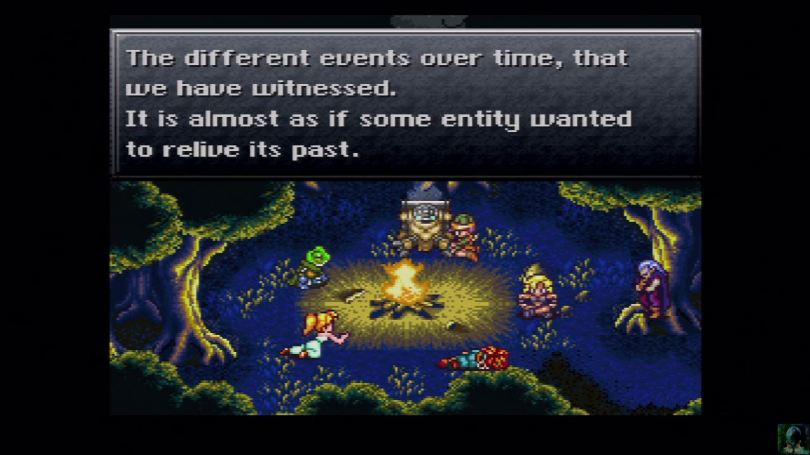
In the game, the companions remark that they believe they are observing the final thoughts of an Entity that is dying. My question was always this: why did the events have to be observed? Did this mean that the events had already happened, or were they happening now because they were being observed?
Maybe it was both.
Some of you may have heard of John Wheeler’s delayed choice experiment*, but for those of you who haven’t, what you need to know is that this was a series of thought experiments conducted in the late 1970s by theoretical physicist John Wheeler that proposed that light (which we know can be a wave or a particle) doesn’t “decide” what it is going to be until it is measured, meaning that light is both a wave and a particle until we observe it and (basically) change its state of existence.

What you also need to know is that it is only recently that we’ve developed the technology to test and prove this theory (full article linked here and more accessible article linked here), so it turns out that Mr. Wheeler was correct: reality (or at least part of it) must be observed in order to exist.
Another way of thinking about this is: is a tennis ball in a dark closet green, or does it have the potential to be green upon being observed? Does a tree, indeed, make a sound if nothing is there to observe it?
Before I completely lose you, the point I am trying to make is this: if our observation of reality is integral for its realness, then reality may only be as real as we make it.

This leads to the idea that each person is experiencing a different reality than the person next to him/her. But how can that be possible?
Well, say we both went to a seminar on symbolism in role-playing games. We would each bring our own experiences from playing RPGs, our life experiences, our education, our personalities, and the other unique things that make you “you” and me “me.”
Through this lens, we would hear the seminar. While hearing the same information, you and I might come away with different experiences, different insights, and different interpretations based on our respective pasts, and yet we were both sitting in the same “reality” at the same time, listening to the same words from the same speaker.

For a more concrete example, go back through the comments on this blog (or your blog) and see what people talk about. Each person takes away a different point from what you’ve written, because something individual resonated with them, and sometimes that “something” was not what you would have expected. So even your readers are experiencing your own articles differently from one another.*
Even the realities that you created on your site are changed, based on who is observing it.
You Are as Real as I Believe You Are
Speaking of creating realities, I pose one final thought experiment, brought to you courtesy of the kingdom of Zeal: if our observations act upon events in the world, so too are we acted upon, not just by our thoughts, but by the thoughts of others. And that can mean many things.

We are each as real as we believe ourselves to be, and there is only one person in the entire world that truly knows you: you. You are the only one who knows every detail, every nuance, every little thing about you, and knows the truth behind everything that you do. You are, in fact, real.
There is an idea in Buddhism that “You are what you think.” If you believe yourself to be resilient, you will find a way to overcome a task. If you believe yourself to be skillful, you will take on challenges. And, alternatively, if you believe yourself to be incapable, you will be incapable. Your mind is so powerful that it can create you in any image you want, provided that you want it or believe it to be true.
And that image you create of you is, in fact, real.

But what if I told you that you’re also a figment of my imagination? And not just my imagination; every person you meet imagines you differently. Each person walks away with a different interpretation of who you are, which is real to them, but not “real” to you or to another person. Someone might call you friendly, resilient, and smart. Another person might find you irritating and pedantic. You might find yourself pragmatic and outgoing. So which of these is the true “you”?
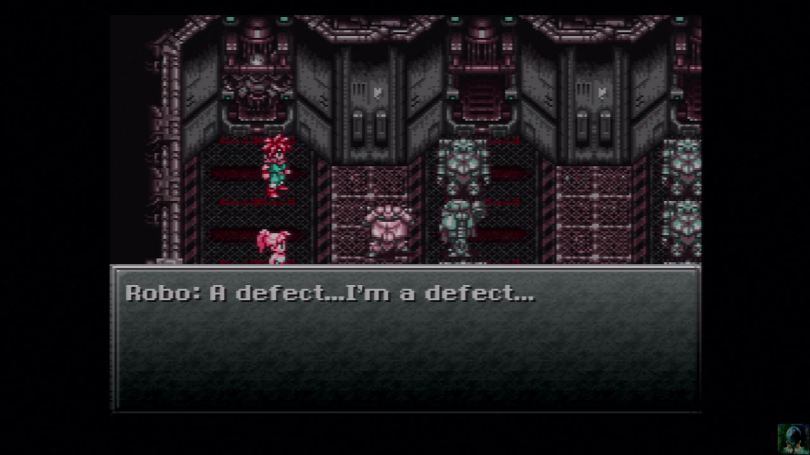
Well, some would say that your interpretation of yourself is the best one, but that’s not true. Everyone, including you, observes the “youness” that is you through their own lens. You are, therefore, everything you believe yourself to be, and everything that other people believe you to be (even if you think they’re mistaken), at the same time.
My concept of you is real, based on my experiences and as viewed through the lens of my own reality. You might disagree with me, and you’d be right. But that doesn’t make me wrong.
We are real, and yet we are also interpreted. We are true, and are also imagined.
So, the next time they say you can be anything, be a dinner plate pretending to be a butterfly.
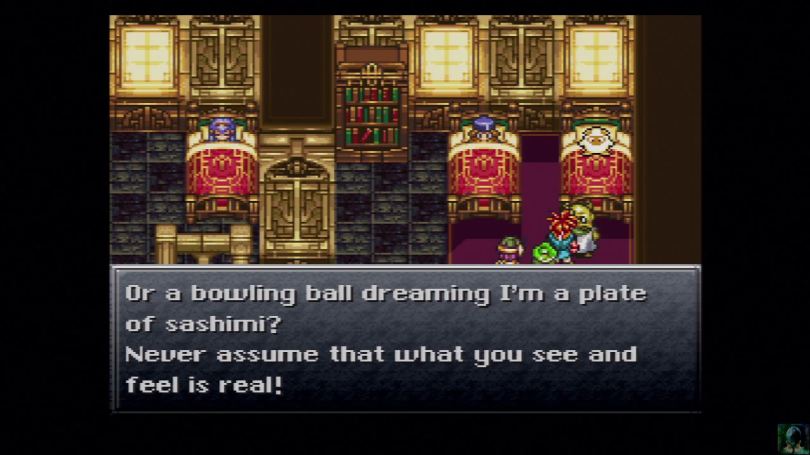
Have I blown your mind? Do you ever consider the nature of reality? Who knew Chrono Trigger could be so deep! Have you ever considered that reality can, in a sense, bend to your will? Let me know your thoughts in the comments!
Thanks for stopping by, and I’ll see you soon!
~Athena
Do you like what you’ve read? Become a revered *Aegis of AmbiGaming and show your support for small creators and for video games as a serious, viable, and relevant medium!
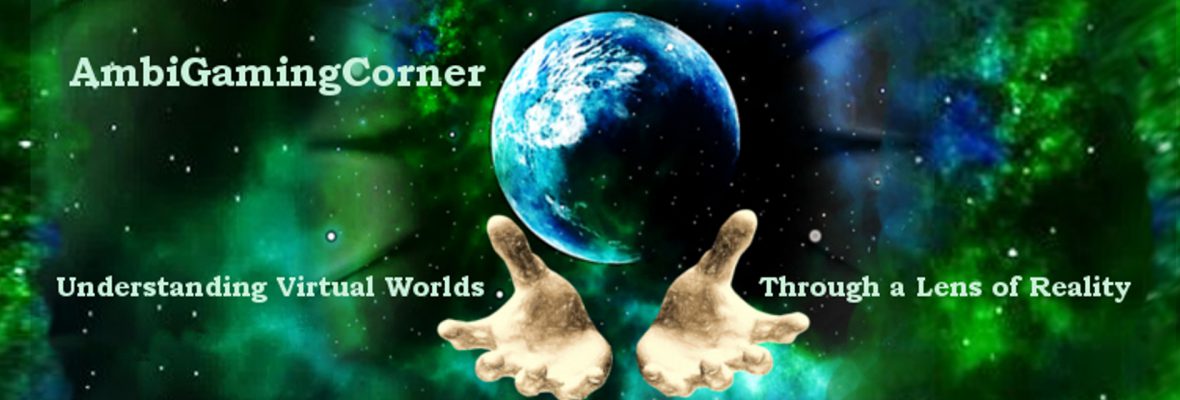

Something that’s interesting enough to deserve being chucked in there along with the presentism vs eternalism discussion is a rather fun little proposition by a Scottish idealist called John McTaggart: the A-series and B-series of time.
The two series actually sort of correspond to presentism (A-series) and eternalism (B-series) in some ways; McTaggart initially devised them as part of an argument for the unreality of time, but I think I just rather like them as ways of describing different ways to perceive time.
The A-series takes the present as being the point to which other things relate, so saying ‘X happened two days in the past’ or ‘Y will happen three years in the future’ is all good. The point at which the present is obviously changes depending on when the person is speaking, which also changes the relationship. X can happen two days in the past one day, and three days in the past the next.
Under the B-series perspective: past, present, and future are all equally ‘real’, and it’s just a matter of ordering them in a way that is basically just for the purposes of making sense of things rather than a statement of ontological accuracy – but you can’t say things like ‘X happened two days in the past’. It’s more that X is placed two days before the time that you’re speaking (let’s call that time Z), which is fixed and doesn’t move in relation to other stuff. So ‘tomorrow’ (not that I can really say that under B-series lingo) X’s position in relation to anything else hasn’t changed like it does in the B-series; X is still two days before Z.
I like relating this to fictional worlds: the A-series only allows for things that *really have happened or will happen*, since you can only relate events to your own position in time, and this means that events that only fictionally happened have no place. If you’re using B-theory thinking, though, you can have multiple series-es in which events can be correctly positioned as before or after other events, whether they happened in our world or a fictional one. So the B-series allows for an ontology that accounts for fictions as being no less than actual, which I rather like.
LikeLiked by 3 people
Now these are the types of conversations I’m always excited about!
I always think it’s interesting that the arguments seem to come down to “human experience is the fixed ‘arrow’ of time perception” versus “time is fixed and we are moving through it and our perceptions are not objectively true.”
The only thing that I would say about the A-series and fiction is that fiction is like a dream: it is something that occurs, but is only brought to life at the point that you’re thinking about it or observing it, aka when it becomes “real” to you. Another way of thinking about that is the idea that just because something is happening in your head, it doesn’t mean that it isn’t real. To me, that is outside the need for validation within the constructs of our conception of time; our thoughts and ideas are real even though they happen in our head, and they exist even though they are in our head, and thus fictional stories are real even though they are in our head. I sort of see that as more “differing planes of existence,” rather than an attempt to force events into the “straight line” of time.
And, in particular to our brains, we don’t often draw a strong line between an “IRL” experience and a “fantasy” experience, which accounts for real emotional reactions to fictional stories, gaining insight from fictional stories, and learning ways of coping/acting/thinking from a fictional story in the same way that we would learn from a factual story (or, in some cases, from our own personal experience). I’m interested in this idea that putting fictional events on a timeline would somehow validate their existence as real… This is different from how I see fiction as real, and it’s fascinating!
LikeLiked by 1 person
“Of course it is happening inside your head, Harry, but why on earth should that mean that it is not real?”
I think whether fiction *needs* any sort of ‘validation’ or whether it needs to be possible to describe as ‘real’, whatever definition of that word anyone happens to be using (which is a whooooole ‘nother dissertation), is probably up for argument. Personally I don’t necessarily think that it has to be possible to argue for fictional worlds as having genuine actual existence; like you say, we can often learn from fiction in the same way as we do from reality, and it doesn’t need to be ‘more than in our heads’ for that to be the case.
That said, I think I do lean towards a slight preference for the B-series. McTaggart in his original thoughts on the two theories described the B-series as tenseless (points are fixed, but have relations to each other) and the A-series as tensed (the present is ever-moving, and so what’s past and what’s future is forever changing): he used this to argue for the unreality of time in A-theory on the grounds that it’s inherently contradictory for the same point in time to be both past and future. (Personally I’m not convinced that I’d go that far, since that seems to be just a matter of terminology.) In B-series thinking, though, all points just happily sit along a line, and there’s nothing to say there can’t be more than one line; hence it’s possible to make sense of fictional events happening before or after each other, despite the fact that they didn’t *actually* happen. It doesn’t necessarily suggest that these events are ‘as real’ as things that have happened in our world and on our timeline, but it creates a way of being able to be ontologically consistent while describing unreal events as if they actually transpired.
As to the question of what time really is… I think it makes sense to say that time exists outside of human perception, since all sorts of things happen when we’re not perceiving them (and billions of years happened without us being around). However, it is one of those things that we have an experience or perception of that I think is probably a separate entity from what it really is, if that makes sense. I think our brains are equipped to perceive time in a certain way so as to be able to make sense of the world, but I don’t think we’ll ever be able to say that time does in fact move in the way that we think it does. If anything I suspect our perception of the movement of time is what you might call an emergent property, something that arises from the necessary qualities of what time is and how it exists, but that isn’t actually one of those necessary qualities. (An example of an emergent property: none of the molecules which make up glass are transparent, but when ordered together, the whole gains a quality that simply being the sum of its parts doesn’t account for. Consciousness has been argued to be a similarly emergent phenomenon: something that a neuron on its own doesn’t have, but that the arrangement and collection of them in a very specific way somehow gives rise to.)
LikeLiked by 2 people
A+ Harry Potter reference, sir! Listen to the man; Dumbledore knows his stuff.
I’d agree with the final point you made: it comes down to whether we measure time based on our experience of it, or based on a more “outsider” or “objective” view that we could never experience in our current existence.
But I also don’t have a problem with things existing and not existing at the same time, so there’s that. It’s a mind-boggling yet somehow comforting thought to me.
LikeLiked by 1 person
I mean, we do measure time in a way that is separate from our own observation (or we’d just be going ‘yup, that was a second. There was another one.’) – I think the definition of a second is based on a particular element’s radioactive half-life cycle or something at the moment.
My old lecturers wouldn’t like me saying this, but I also don’t really mind things being both real and not real. It’s why I like writers like Murakami and Gaiman: stuff happens in their stories which is totally impossible but also true. I got no beef with invisible pink unicorns.
LikeLiked by 1 person
Is that separate, though? It’s our observation and interpretation of what’s going on in that element. Time is a thing outside of our experience, for sure, but we measure it based on our own creations, I think… hm…
I think there need to be more invisible pink unicorn. Just saying.
LikeLike
Existential crisis, yayyyy! In all seriousness, idk how to deal with my mind being so thoroughly blown. This was a great read. Also, it was super timely (ha!) because I just got my hands on The Geography of Time.
LikeLiked by 1 person
Yay! Happy to help! 😀 I’m glad you enjoyed the read, even if I boggled your mind a bit… And I’m so glad my timely piece about time came just in time for your acquisition of The Geography of Time. Seriously, though, let me know what you think of the book; I haven’t read it but it sounds fascinating!
LikeLiked by 1 person
Will do! I barely scratched the surface, but so far it is super interesting.
LikeLiked by 1 person
And critics say that video games have no artistic value. Hearing these interpretations of Chrono Trigger especially with the usage of 7 of course makes me think of FFVII, which is another “what is reality” type of narrative on more than one level. What really happened and what led everything to that point is both a matter of fate and interpretation. Seeking the reality behind the illusion, as you so eloquently put, is so integral to finding the truth, but the fact it’s never completely found makes the story what it is. Since both VII and CT are made by Square, it’s not surprising they have similar concepts, and VII would use the ones CT presented before.
As for asking about the nature of reality, I immediately thought of SOMA, which also begs the question of consciousness. Since our consciousness is how we experience reality (or what we think of as reality), it’s a question that’s plagued and will continue to haunt use until and if we ever find an answer (if you haven’t played or watched SOMA, I HIGHLY recommend it. You would have a field’s day with it. I’m still working on my review/analysis of it).
The idea of the past being an illusion makes me think of the concept of Last Thursday, which one of my favorite YouTubers V Sauce has made a video about. It’s a major issue with our current culture in that people don’t understand that nothing that exists now came out of a vacuum. Everything thing whether it be tangible or an idea came from somewhere. We didn’t arrive in our current way of life out of nowhere, but Last Thursdayism is the hypothetical concept that the world was created last Thursday and things just are what they are. It’s frustrating to say the least when you’re trying to explain to people how arbitrary cultural concepts are (especially now as an American arguing over imaginary lines, ugh).
I think I’m more of an eternalist hehe, but understanding presentism is so important, because it colors the way we examine concepts. Recent example has to to do with video games. Hungry Goriya was talking about how she listened to a review of Illusion (ha, more of those!) of Gaia and the reviewer’s critiques were unfair because they were judging the game based on present standards, and you can’t do that with older titles. I used to get so frustrated when my one roommate would look at FFVII and say “Wow that game is so old” with judgment about its graphics. That’s what they had to work with at the time, and they did what they could. Honestly, some brilliant things have come out of limitation. The prelude to the entire series was written in half an hour, and because Uematsu had to work within the framework of the NES’ midi system, he used a simple arpeggio that’s now world famous. Having to stay within a certain framework can hone art, so it’s nothing to sneeze at.
Er, I think I’ve gone off on a tangent, and been REALLY long winded. There’s something else…Ah! The light thing! It’s as though light were a quantum particle, because until those are measured, they can be anything. I believe this is the point Schrodinger was trying to make with his cat in the box.
I think about the “Who am I?” question more than I’d like to admit, and I’m not going to go into some of the more personal reasons here, but I do ponder the idea that different people certainly see me in different ways, because I’m a different part of myself depending. I’m more of myself for the ones I trust, but it’s honestly funny to hear how some people describe me. My current boss thinks I’m super outgoing, and I think “Ah, I’m a good actress then,” because that’s what it is. I’ve learned how to, er, be a normal human to avoid social awkwardness. It’s tiring because I’m super introvert, but I don’t want to be in my head when I’m out in public, because I don’t want people to feel uncomfortable, but it…is…tiring. It’s why I love just being in my apartment because I don’t have to pretend or act in a certain way.
Oh and you definitely touched on solipsism here! In terms of people being a figment of your imagination. It’s a concept that suggests you and only you exist and everyone else is a hallucination. It can’t be proven or disproven, similar to the Boltzman Brain, which are more concepts used in SOMA (omg I want you to play/watch that so badly so we can talk about it lol). How do we know we’re not all brains in jars, experiencing the electrosignals and chemical reactions that give us this reality? We don’t, and it’s quite…jarring.
And with that, I shall shut up 🙂
LikeLiked by 1 person
Yeah it seems like Square had some reality-bending ideas on their mind when they made a few of their games… You keep telling me about SOMA and I really need to make an effort to get through it. I heard there’s some sort of story mode now so it’s not quite as terrifying… Hm…
I really do think everything is a matter of perspective, and context is always important, especially when “judging” something of the past. Romans were considered brutal for their crucifixion practices, but they *were* civilization at that (very brutal) time. When the people north of them were running around in skins and painting their faces blue, the Romans had indoor plumbing and women’s rights (at least a few). Anyway…
I did touch on solipsism! I think that’s a fascinating idea, to be real and not real at the same time. Like, typing on this keyboard, I can feel the keys and my fingers moving, and I can feel the muscles in my arms tightening in different ways when I move my hands. But what if all of those sensations could just be because my brain is being stimulated a certain way, and not because there is a real keyboard beneath my fingers? I find that thought oddly comforting, in a way. it makes you take things much less seriously and very seriously all at once. It is, after all, all in your head. But maybe that’s the only place it really needs to be.
LikeLiked by 1 person
Well…I’m not going to say that SOMA is less terrifying with story mode. Oh, the monsters are scary and they sound scary, but the real horror is more existential. You should at least be able to get through it. I think you’ll love the questions it brings up.
The “brain in a jar” or Boltzmann Brain is such a trippy idea, and there’s no way to prove/disprove it. With some scientists speculating that we may be living in a simulation, it makes it even more wild. Everything you experience is filtered through the pink sponge in your head, and when we agree on what we’re experiencing, we call that reality, but even if two people see the same thing, they’re going to filter it differently and come away with two separate experiences.
LikeLiked by 1 person
This is great
LikeLiked by 1 person
Hey, thanks! 😀 Glad you liked it, and thanks for commenting!
LikeLike